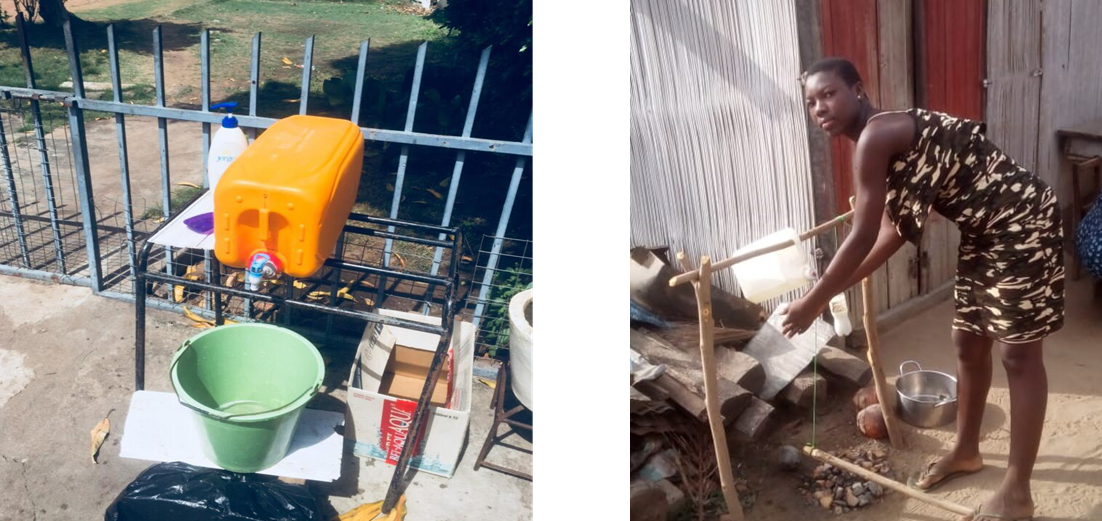In a recent report Chatham House, an independent UK political think tank, summarised the general perception of how COVID-19 has affected the African continent: “Despite public health constraints, widespread infectious disease, and poor nutrition, COVID -19’s toll on Africa has so far been less than initially feared”. In Ghana, rates of infection and COVID-19 related deaths in Sub-Saharan Africa (SSA) have remained comparatively low, especially compared to the number of fatalities among non-white people in South America and elsewhere in the world. There is no reason for complacency yet, though, as “[…] the situation changes daily and significant uncertainties remain. […] Resilience should not lead to complacency, which, in itself, would become a major risk.”
Concrete challenges related to fighting COVID-19 in Adaklu include: lack of drinking water; price hikes for convenience goods since the outbreak of the epidemic; crowded living conditions; high share of residents who cannot read or understand English (the official language of Ghana) and therefore depend on information passed on by other members of the community in Ewe (the local language); existing healthcare facilities lacking equipment and drugs. The Adaklu District Health Director is heading a COVID-19 taskforce, which together with the District Public Health Emergency Management Committee (DPHEMC) coordinates actions to combat the epidemic.
Since mid-March 2020 the Grow Your Dream Foundation team has included information on COVID-19 in their activities in communities across Adaklu. In meetings at community level with key members of each village we have been stressing the need to take seriously the threat posed by COVID-19. Special emphasis has been placed on educating community members about false information that is being spread via social networks and word of mouth, such as the myth that Africans are immune to the virus. The practical advice given includes the need to frequently wash hands with running water and soap. Unfortunately only small parts of Adaklu Districts are connected by the piped water network, which means that hand washing poses a challenge. Commercial suppliers offer so-called Veronica Buckets, which consist of a wooden stand which holds the bucket, towel and soap, and a washbasin placed below the tap to collect the used water. Veronica Buckets are a Ghanaian invention serving as a simple way to encourage proper hand washing. The price for purchasing a Veronica Bucket is modest, but may still be too high to make it affordable for the poorest communities in the country, such as in Adaklu. The team of GYDF have come up with a solution which is even more inexpensive: By fixing a tap to a used canister and placing it on a fence or branch fork (see photo), a hand washing facility can be implemented for very little money. As canisters of this type are usually readily available in each community (since they are used to transport fresh water from nearby rivers), the device can be set up quickly.

While the rural population can comparatively easily be convinced of the need for hand washing, some of the other changes to established behaviour are more controversial. Many Ghanaians find it difficult to replace the obligatory handshake by safer methods of greeting, such as a wave, a nod or a bow. The same is true for maintaining at least one metre distance between oneself and anybody else (social distancing). What is more, the fear of stigmatisation (and of being quarantined in central facilities) can make individuals with symptoms that may be related to COVID-19, such as coughing or sneezing, try to hide their condition rather than seek medical attention. To convince community members of the need to behave according to the recommendations of the health authorities will often require a concerted effort and continuous communication, including the will to listen to people’s fears and wishes. Ideally, members of the community should get the possibility to discuss and co-develop ways of suitable behaviour which are workable and acceptable by all those who are concerned. This is the approach chosen by GYDF.
See also: